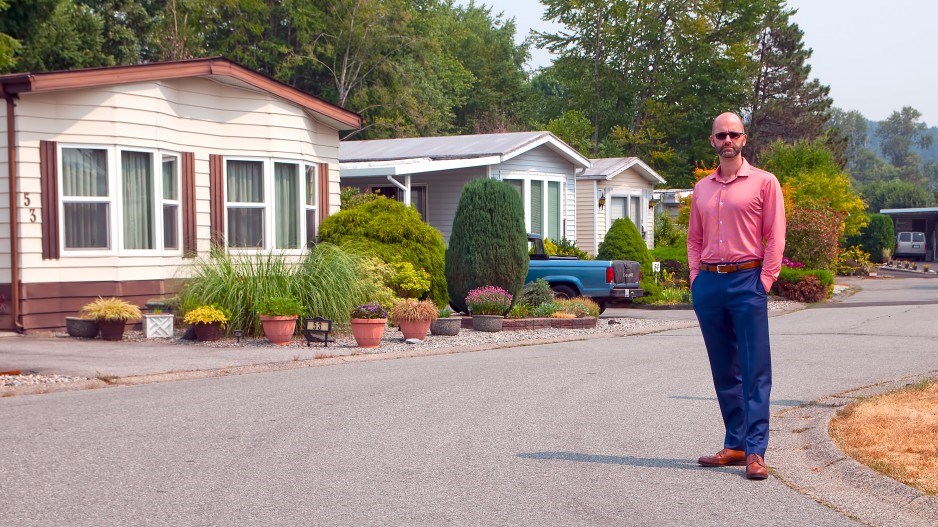There are approximately 183,000 owners of manufactured homes in Canada, and nearly all of them have been banned from accessing refinancing of their mortgaged homes.
Recent government actions outlawing the refinancing apply to all homeowners with an insured mortgage, but owners living in manufactured home parks will be the most affected.
“The overwhelming majority of mortgage lenders financing mobile homes [from chartered banks, credit unions or mortgage finance companies] require mortgage insurance,” said Dustan Woodhouse, a mortgage broker with Dominion Lending Centres in Coquitlam.
“This mortgage insurance is required in just shy of 100% of transactions involving a mobile home.”
But last October, the federal government banned the three main insurers in Canada – Canada Mortgage and Housing Corp (CMHC), Genworth and Canada Guaranty – from backing any kind of residential refinance transaction.
“As a result of Department of Finance changes, government-backed mortgage default insurance is no longer available for refinancing properties of any type,” said Jonathan Rotundo, a senior media relations officer with CMHC.
“There is nothing in the rules that is unique to manufactured homes – this change applies to all property types.”
But, as Woodhouse noted, it is owners of manufactured homes and others on the bottom fringe of the housing market that will be most affected.
“They did not take a measured step and reduce the refinance from 80% of the property value to say 75% or even 65%. Instead, in one stroke of the pen, the federal government flat out eliminated refinance options for tens of thousands of Canadian families,” he said.
Rotundo pointed out that “lenders may continue to refinance on a conventional [uninsured] basis,” but Woodhouse and other brokers say the interest rate on such loans is much higher than what is available with insured mortgages.
Several brokers are already reporting cases where their clients have tried to refinance only to find it wasn’t possible, or they are having to use private lenders that don’t fall under the same government regulations as the mainstream lenders.
Joe Tomkins, a mortgage broker with DLC Canadian Mortgage Experts in Nanaimo, B.C., said several of his clients have already been forced to use a private lender in order to refinance, at a much greater cost.
“A client of mine had to refinance for personal reasons and they needed to get equity out of their home,” he said. “It had to go to a MIC [mortgage investment corporation], and it was 12% and included a very high fee as well. But that was the only option.”
Joel Olson, a DLC Mortgage Experts mortgage broker in Kamloops, B.C., has also had clients refinance at 12% and pay a $4,000 fee because “that was the best and cheapest option of everybody out there.”
He added that the restrictions aren’t unique to mobile homes, but can also include other affordable homes, such as small condos under 550 square feet.
Tomkins noted that while there’s nothing preventing mobile home purchases, he said the key is that buyers, their real estate agents and mortgage brokers should be aware of the restrictions they will face if they plan on refinancing down the road to access the equity in their home.




